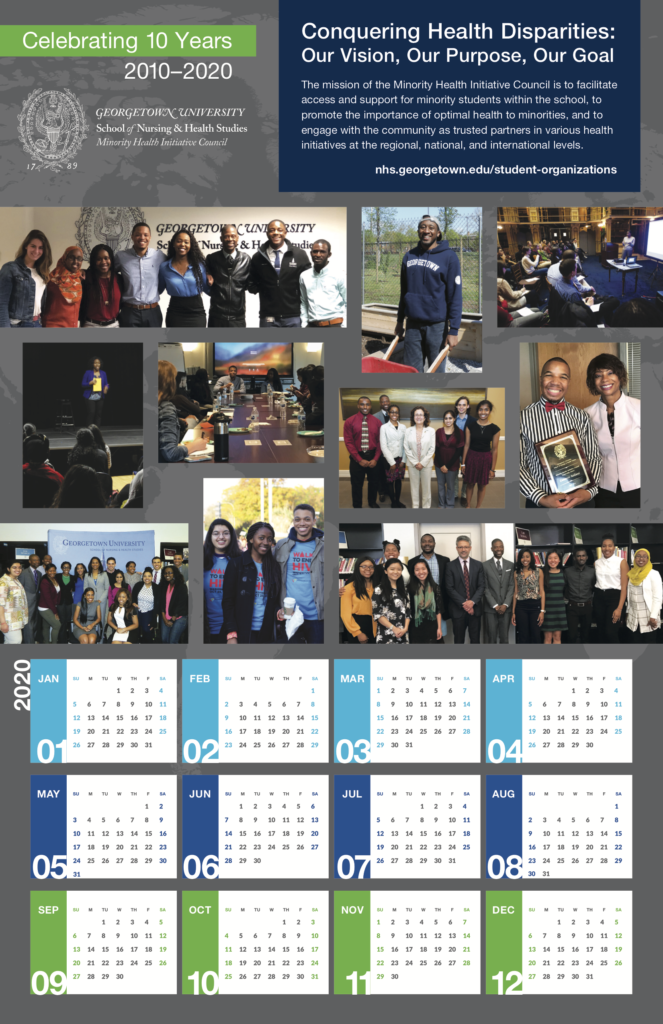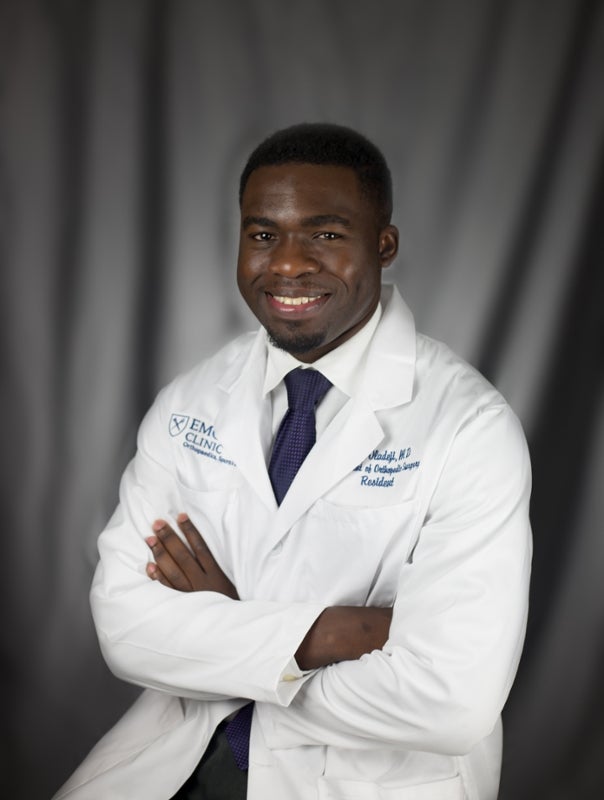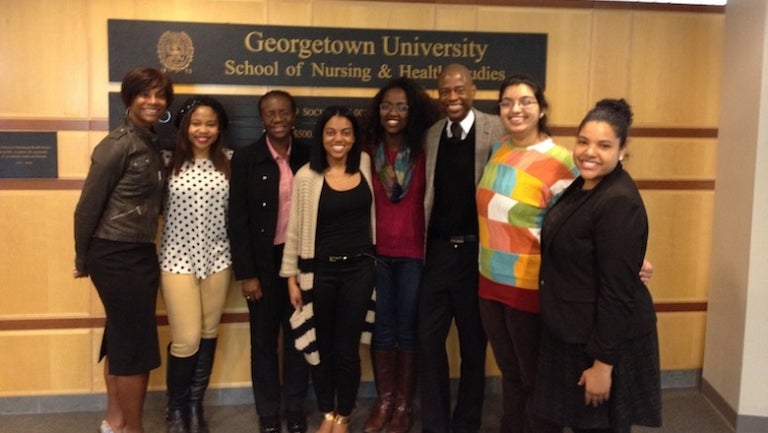Minority Health Initiative Council at School of Nursing & Health Studies Celebrates 10th Anniversary
February 4, 2020 – The Minority Health Initiative Council at the School of Nursing & Health Studies is celebrating its 10th anniversary this winter.

Formed during a Dr. Martin Luther King Jr. Day reflection a decade ago, the student-led organization has flourished, supporting its mission to “facilitate access and support for minority students within the school” and to promote “the importance of optimal health to minorities . . . in an effort to reduce health disparities.”
Brian Floyd, an academic dean at NHS, has advised and mentored the student organization since it was founded. “Working alongside these students over the years has been a rewarding experience,” he said.
“Their dedication to their mission and the work they do with our various partners is evidence of why achieving health equity must remain a priority goal for individuals and populations in which race, gender, and socioeconomic status all play a part,” added Floyd, who advises the council with colleague Dr. Edilma Yearwood, chair of the Department of Professional Nursing Practice.
“It is also a true testament to the importance of why we need more underrepresented minorities now and in the future within various health professional roles as having greater racial and ethnic diversity among health professionals is essential to augment the pool of decision-makers who make strategic and tactical decisions around public policy, program design, and resource allocation that impact health in the most affected communities,” Floyd said.
Past Council Leaders Reflect
Dr. Philip Oladeji (NHS’12) studied nursing at Georgetown, went on to medical school at the University of Texas Southwestern, and is currently a resident in the Department of Orthopaedics at Emory University School of Medicine.

Oladeji was a founding member of the council and served as its chair. “I am extremely thrilled that this council has continued to thrive after 10 years,” he said. “I believe that the mission of the council is of extreme importance as health care disparities continues to be a significant problem in our country today. The support and community that this group provides is instrumental in ensuring the success of minorities going into the health care field, which I believe will be a major key in decreasing health care disparities in the future.”
Aspen McCoy (NHS’15), a human science alumna, chaired the council with her classmate Khadijah Davis (NHS’15), a health care management & policy alumna. She recently earned her MPH in global health policy at George Washington University.
“At the time of my involvement, MHIC helped me reach my academic goals and thus solidified my professional goals,” McCoy said. “As a first-generation college student, my family often struggled to help me navigate my studies. I wanted to give up the seemingly daunting task of pursuing a career in the health care field on several occasions. This lack of confidence in myself changed upon joining the council, however. Brian Floyd, the MHIC advisor, motivated and encouraged me to stick with my passion regardless of the obstacles. He often reminded me that my dreams could become a reality. He is a lifelong mentor to this day that I will forever cherish.”
Many Contributions
Since it began, MHIC has been a very active presence on campus and in the community. The council has hosted and co-hosted prominent leaders such as Dr. Donna Christiansen during her service as a delegate from the U.S. Virgin Islands in the U.S. House of Representatives; Dr. Elena Rios, president and CEO of the National Hispanic Medical Association; Dr. Brian Smedley, co-founder and executive director of the National Collaborative for Health Equity; and Maria Gomez (NHS’77), founder, president, and CEO of Mary’s Center and currently a visiting distinguished professor at the School of Nursing & Health Studies.
The council hosted, in 2014, a praise and worship service in St. William’s Chapel to honor Black History Month and the 50th anniversary of the Civil Rights Act of 1964. It has organized alumni panels for current students to learn about career and further education paths graduates have taken after Georgetown. It has established relationships with community organizations for service activities, such as the Walk to End HIV in Washington and education about nutrition. The list could go on.

A Lasting Legacy
Floyd noted that the council officially kicked off the 10th anniversary – along with alumni, current students, faculty, and staff – at the university’s Patrick Healy Dinner in January.
This semester, the council will continue teaching nutrition classes along with Georgetown’s Institute for College Preparation to middle and high school students; partner with University of North Carolina at Chapel Hill’s Gillings School of Global Public Health to promote and live-steam the school’s conference “Truth to Power: Exercising Political Voice to Achieve Health Equity,” in an NHS course; and present a panel for current minority students across majors to learn from graduating seniors.
“I am so pleased that the council is currently celebrating its 10th anniversary,” McCoy added. “I am grateful for all the council provided to me while in college. I hope that this legacy continues for many more years to come.”
“Being a part of the MHIC was instrumental in helping me reach my academic and professional goals,” Oladeji said. “One of the biggest ways it did this was reiterating my why. Why be a physician? Why go down that grueling road? The mission of this group answers that question, and without knowing your why, it is extremely difficult to be successful in medicine. Secondly, the council provided me with the support and guidance I needed, at a very critical time in my professional development, and I continue to be grateful for that.”
